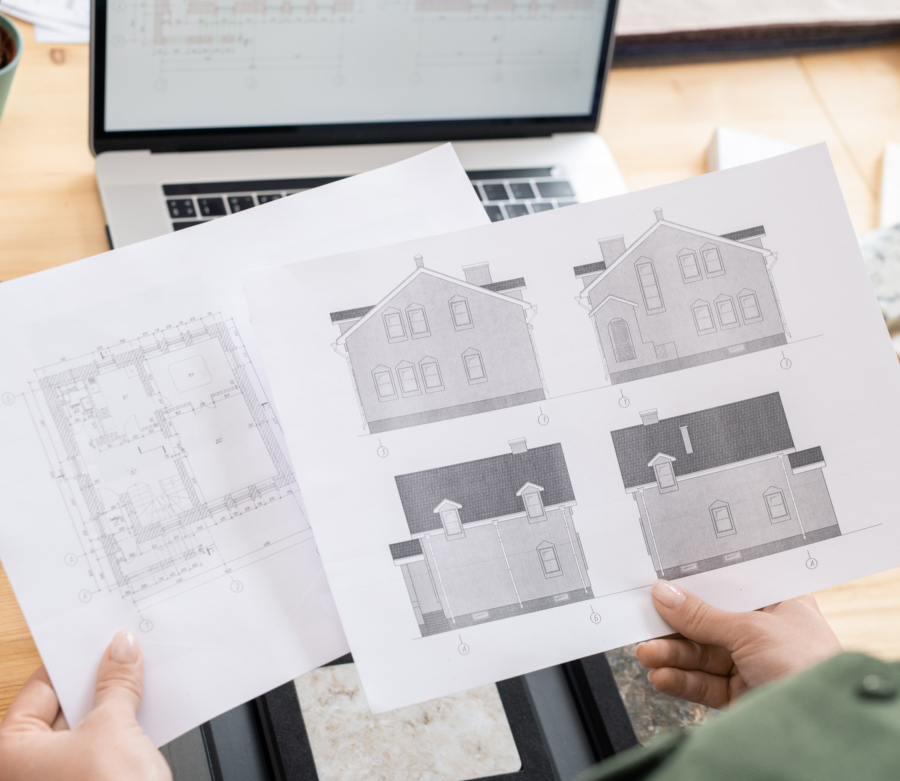Buying and Selling Must Knows from Andy Davies at James Neave Estate Agents.
As a career long estate agent of over 20 years, I pride myself on helping people with their moves. Moving home can be stressful and emotional. Sometimes you just don’t know what to do or whom to ask for help.
One of the common gripes about Estate Agents is that they don’t know enough about the property they are showing you or showing for you. On the whole estate agents can struggle to answer even the simplest of questions.
I feel for the Agents. When you are dealing with multiple properties it can be tricky to remember and the last thing you want to do is get it wrong or give people the wrong information.
At my agency James Neave, we have tried to tackle this problem by asking our sellers to write out Viewing Crib Sheets for our team to use on the viewing appointments. These crib sheets are great as they are in the owner’s own words and can give useful information that us estate agents could never be expected to know or remember.
So, what are the best and most helpful tips to help everyone in the process – here are my suggestions:
Position and timeframes
Vital information to know so that you can see if there is synergy and how long things might likely take!
Have there been any recent works on the house that are relevant
Have you / they recently decorated, or perhaps the electrics have been updated or maybe some double glazing added or improved. Sometimes there has been work done to the roof or structure of the house. Generally, the real infrastructure of a home is not always obvious on first look, so make sure that your potential buyers know as much as possible, this can all add hidden value to that end sale price.
If work has been done, documents confirming it is completed and rated accordingly are helpful to have to pass to the next owner.
Has the home been extended/have you looked into extending it further?
Don’t be afraid to talk about future growth. It won’t put anyone off or make them think the current house is to small. Its great if buyers know there is potential to extend or change things down the line.
Knowing whether there could be any restrictions due to local area regulations can also help as what you envisage for a house may not be realistic. This could include listed properties, areas of outstanding natural beauty or council regulations when it comes to extension or outbuildings.

Age of the property
It is always a good idea to know when properties were built. There are a few scary words associated with different eras, Asbestos in the 70’s for example. But again, by knowing the information, sensible decisions and proper professional advice can be taken. These scary terms and words are often far less scary in reality once a professional has offered their advice on the matter.
Structural issues
Hopefully the answer is no, but if not its better to be totally transparent and up front. People prefer honesty and if there is an issue then better that it Is factored in from the start. If there are any repairs required which have been priced up, having these costs available for a potential buyer is also useful.
The boiler
Where is the boiler? An obvious one you’d think but I can tell you how many times on viewings over the years I’ve had to hunt around the house to find a boiler!
How old is the boiler and what is the service history? This is a key one that buyers need to know. Boiler age is important as this can be a costly thing to have to change should it be nearing the end of it’s expected life. Any extra info you can give here, including details of servicing history and any issue it may have had is great as it helps buyers make key decisions quicker.
Underfloor heating
If the property has underfloor heating it’s helpful to know what the system is. How it works, when it was installed, what is the required upkeep/servicing. There are many different systems nowadays so understanding which one is in a property is important.
Lofts
Lofts offer the potential for extension to a property, subject to planning permission. But even if you are not interested in extending having one can mean extra storage. It is helpful to know things such as does it have a ladder? Is the floor boarded? Is their insulation? Is there a light/electrics?

Why did you buy the house
This is a great one for sellers to get out some really key information that someone else just may not have considered. Was it because of the short walk to the train station, or the local schools, or perhaps you fell in love with the look of the home. Either way this is great information for the next potential buyer to know.
What is and is not being left behind
Whitegoods, extras such as hot tubs or climbing frames. It’s good to be clear on what will come with the property as this varies and can have an impact on the price.

Neighbours
Its great to let people know about your community. Its always a worry for buyers, no one likes the thought of a troublesome neighbour. But again, if you do have any issues, subtly getting the message out there at this stage in this form, is a much better way to do deal with the situation.
Parking
Not all homes have driveways and convenient parking options. If your home doesn’t then let buyers know what solutions, you have and use yourself. Again, honesty and transparency are key.
Leaseholds
When buying or selling leasehold properties its vital that everyone is clear on all of the information so that they can make an informed decision. The key bits of info are:
- Length of leasehold remaining?
- Is it a share of freehold?
- What are the annual service charges?
- What is the annual ground rent?
- Are there any active Section 20s that have been served for upcoming works?
- Are there any fire safety or building safety act issues that buyers need to be aware of?
Energy Performance Certificates
All properties that go to market now legally are required to have an EPC (except some niche exceptions around Listed Buildings etc.)
Whilst EPC’s never used to form part of buyers discussions or thought process, they certainly do now and certainly should do if you are buying. The EPC Rates the property from A to F and the logic is that the better your rating, the more efficient the home will be and the cheaper it is to run as your heating and energy costs will be lower.
A good tip – EPC’s are valid for 10 years so you often find that a properties EPC is not current or does not correctly reflect the current property. If you are selling, commission a new EPC and do what you can to improve the rating. It is now a key selling point to buyers if you can score well on your EPC.
The more you know
This list is in no way exhaustive, but it is a good starting point. At James Neave, our aim is to ensure both seller and buyer have all relevant and important information available to make an informed decision on whether a house is the right home for them. Not only is a house a big financial investment, it’s where you are meant to feel comfortable, happy and relaxed. Knowing that you have done your due diligence can help ensure that your first day in your new home is an exciting one.
Article by Andy Davies
Managing Director, James Neave Estate Agent
Andy Davies is the Managing Director of James Neave the Estate Agents, bringing over two decades of industry expertise to the helm. With a passion to help people and mentor his team, Andy has steered the company towards unparalleled success and growth. Andy fosters a culture of professionalism and teamwork within the organization. Under his guidance, James Neave continues to set new standards in the real estate industry, delivering exceptional service and results.

 The How of Bigmore Benefits
Previous post
The How of Bigmore Benefits
Previous post
